Minnesota Democrats may have provided path for Michigan to follow: Here’s how
For newly empowered Democrats in Michigan, Minnesota could represent a way forward or the road not taken.
The 2022 midterms delivered victories for Democrats in the two Midwestern states. In Michigan and Minnesota, Democrats secured control of both chambers of the state Legislature and saw Democratic governors reelected.
Only four states won new Democratic trifectas in the last election. In Michigan and Minnesota, Democrats have used their new legislative majorities to pass policies that languished under GOP control. Party leaders across the U.S. have lifted up the two states as models of Democratic governance.
But while Democrats in Michigan and Minnesota have pursued similar policies, such as expanding background checks for gun purchases and repealing abortion restrictions, Michigan's neighbor to the west has gone further, approving measures favored by Democrats in Michigan but not yet introduced. Democrats in Minnesota, for instance, have passed legislation restricting no-knock search warrants and enacting paid family and medical leave giving workers up to 20 weeks off.
“I would argue that … there's no state that’s done more with their legislative power to actually make a difference than Minnesota, but Michigan's certainly up there," said Minnesota Democratic-Farmer-Labor Party Chairman Ken Martin. But it's not a competition. And both states can provide an example for how Democrats everywhere can wield power, he said.
Michigan Democratic Party Chair Lavora Barnes celebrated the speed at which Democrats in Michigan moved to take up policies they've promised to deliver for years and said lawmakers from the party will pick up where they left off when they return from their summer recess.
"The Democrats in the Legislature are not finished. They have a long list of things they want to get done," she said. "So I think the folks in Michigan should just stay tuned. More is coming."
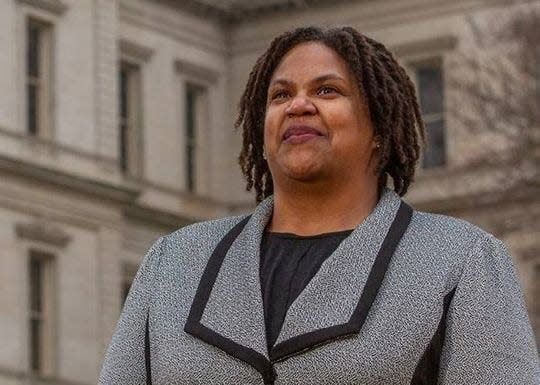
Michigan Democratic Party Progressive Caucus Chair Dennis Bryant said he's generally pleased with what Democrats in the state have accomplished so far. "I mean, there's still a long way to go," he said, noting Democrats were out of power in the state Legislature for decades. "You can't remove what was done for 40 years in two, basically."
The former Michigan Democratic Party Chair, Mark Brewer, posed a test to Democrats in Michigan in a social media post earlier this year: "The performance of Minnesota's Democratic trifecta is very impressive — can the Michigan Democratic trifecta match or exceed its accomplishments?"
Time may tell whether the Michigan and Minnesota Democratic trifectas represent a shared vision for Democratic policies or divergent approaches.
National contest: 5 Michigan regions are competing for 'tech hub' designation
Key 2022 victories for Midwest Dems
In Minnesota, Democrats haven't had a trifecta since 2014. But in Michigan, Democrats were out of power much longer. The last time they controlled the state Legislature and the governor's office was in 1983.
Last November, voters delivered legislative majorities for Democrats and reelected Gov. Gretchen Whitmer. In Minnesota, voters elected Gov. Tim Walz to a second term, Democrats held onto their majority in the state House and Republicans lost control of the state Senate.

In both states, Democrats won narrow majorities.
In the Michigan Senate, Democrats need 19 of 20 members' votes to pass anything if Republicans are unified in opposition, given Lt. Gov. Garlin Gilchrist II serves as the tie-breaking vote. In the Michigan House, a single Democratic member breaking away and voting with Republicans — if the GOP were to stick together to oppose a bill — would result in a tie and the measure would fail.
In Minnesota, Democrats hold a 34-33 majority in the state Senate and a wider 70-64 majority in the state House.
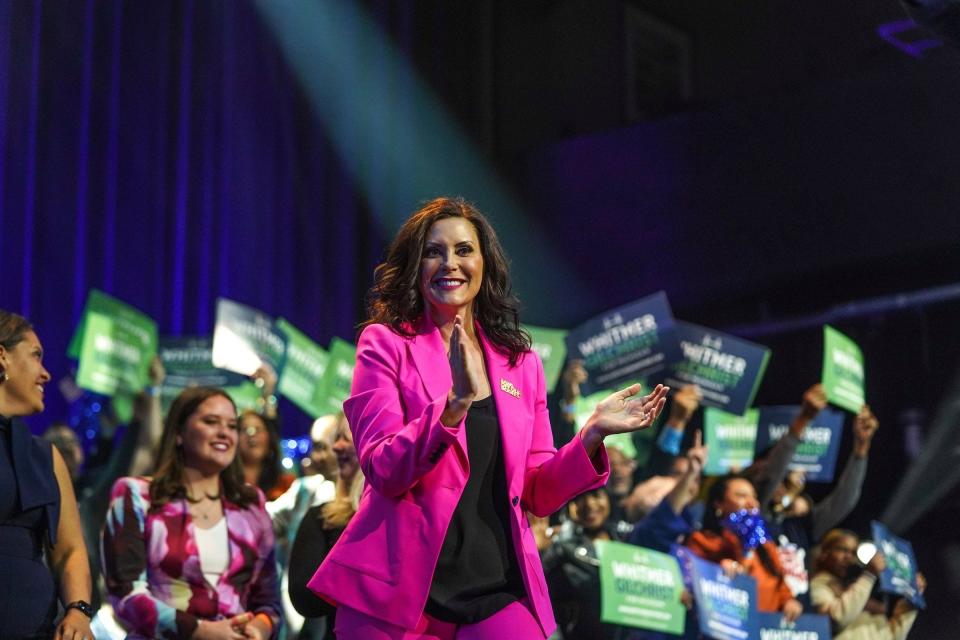
Martin sees a bright spot for Democrats in those fragile majorities. Democrats have taken a slower approach to legislating in states where they dominate politics and don't risk losing their power, he said. "To me, what's happened in Michigan and Minnesota is a miracle in so many ways, because you're not seeing Democratic states around the country moving this quickly," he said.
Staring down what may be a shorter window of opportunity to act, Democrats in the two states wasted little time when they took power in January.
Overlaps and differences in key policies
In many ways, Democrats in both states seemed to operate from the same playbook.
Michigan and Minnesota both passed legislation to expand background checks for gun purchases and enact so-called "red flag" laws that enable individuals to petition a court to take away guns from those posing a danger to themselves or others. Both states passed bills aimed at firming up abortion access and banning conversion therapy targeting LGBTQ+ youths to change their sexual orientation or gender identity. Both Legislatures also approved state funds for free school meals.
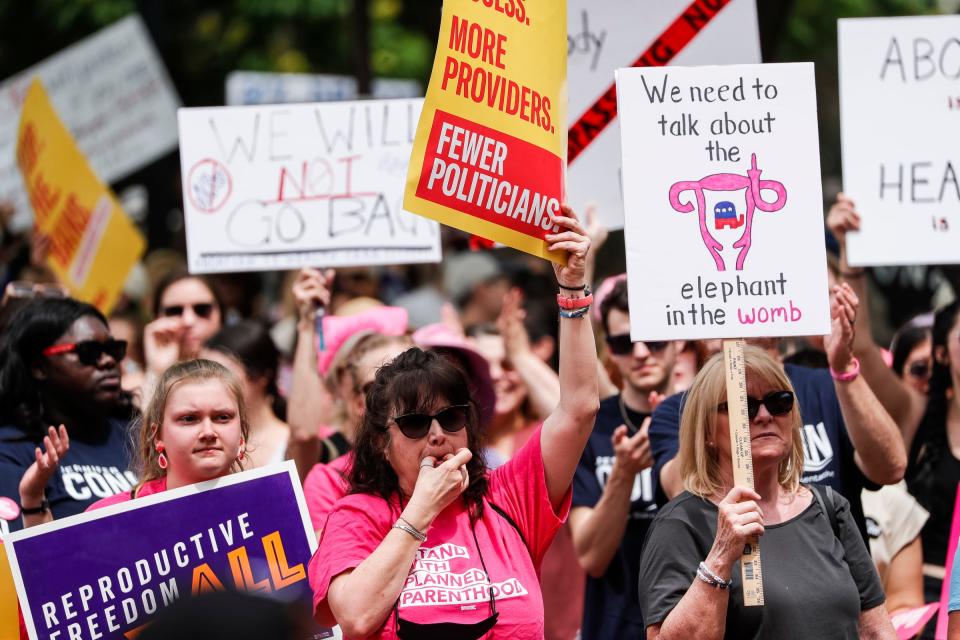
But Minnesota Democrats also passed policies their counterparts in Michigan have expressed an interest in but haven't yet taken up.
Following high-profile police killings, lawmakers in Minnesota approved restrictions on no-knock search warrants, barring courts from issuing such warrants unless law enforcement can demonstrate that they are unable to conduct the search when no one is home or if occupants "present an imminent threat of death or great bodily harm to the officers executing the warrant or other persons."
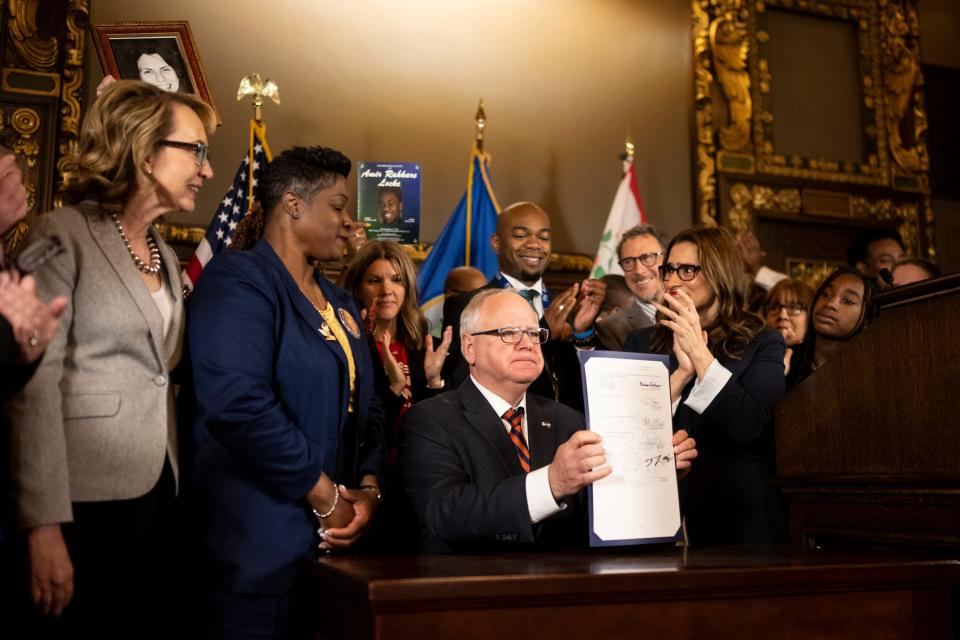
Michigan Democrats have introduced legislation in the past to ban the use of no-knock warrants. They haven't reintroduced similar legislation this year. But lawmakers intend to bring forward legislation this fall focused on restricting no-knock warrants as part of a policing package, according to state Sen. Stephanie Chang, D-Detroit, who chairs the Michigan Senate Civil Rights, Judiciary, and Public Safety Committee and state Sen. Erika Geiss, D-Taylor, who plans to introduce a bill focused on no-knock warrants.
Minnesota lawmakers also passed a bill enabling undocumented immigrants to obtain driver's licenses. Earlier this year, Michigan Democrats introduced legislation to do the same, but legislative committees have not sent the bills to the floor for a vote.
Democrats have heralded a number of other policies passed in Minnesota that could provide a template for Michigan, including legislation providing legal protections for those receiving gender-affirming health care and a child tax credit aimed at reducing childhood poverty.
One Democratic lawmaker in Michigan says she's already keeping a close eye on at least one new Minnesota policy: "I'm going to be really fascinated to see how Minnesota implements its universal paid leave that they just passed, and what we can kind of learn moving forward," state Sen. Mallory McMorrow, D-Royal Oak, previously told the Free Press. She said she wants to make sure Michigan has guaranteed paid family leave.
Michigan Dems look ahead
The Minnesota Legislature isn't set to reconvene until February 2024. Meanwhile, lawmakers in Michigan will come back to Lansing from their summer recess in September.
Michigan Democrats have begun to announce some agenda items for their return. For instance, at a recent event in Detroit, Democratic lawmakers said they want to pass clean energy policies by the end of the year. Democratic lawmakers have introduced legislation that would require 60% of utilities' energy to come from renewable sources by 2030 and require utilities to use 100% carbon-free energy by 2035.
As Democrats eye which policies to take up next, they could see their majority in the state House temporarily disappear if two Democratic state representatives running for mayor — Kevin Coleman in Westland and Lori Stone in Warren — win in November and vacate their seats. It would be up to Whitmer to call a special election to fill the vacancies for the seats representing safely Democratic districts. The Secretary of State's Office estimates it will take approximately four months to hold a special election. House Speaker Joe Tate, D-Detroit, previously told the Free Press that temporarily losing a Democratic majority in the state House "will definitely slow things down."
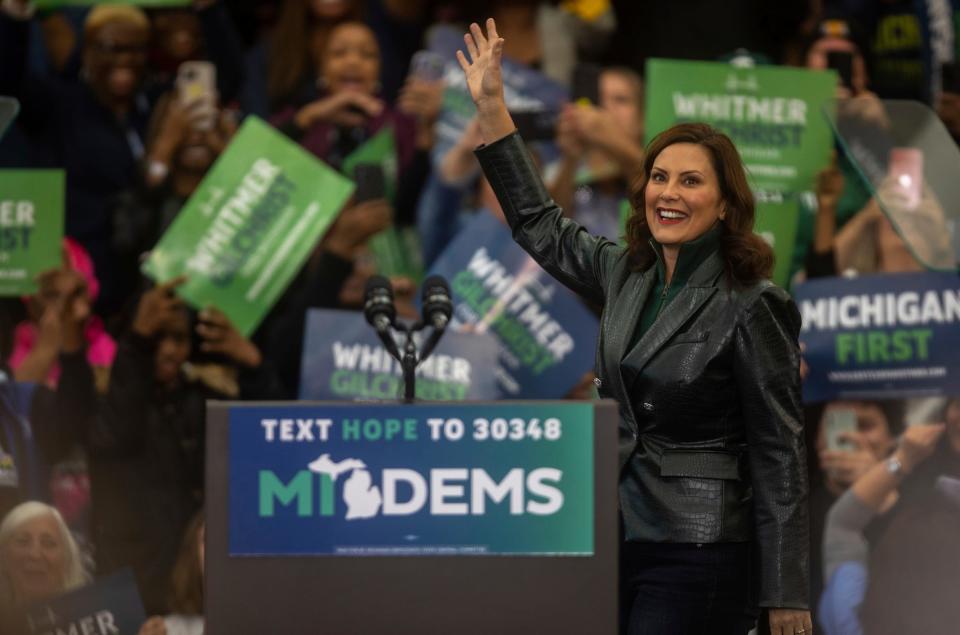
But Whitmer has said that she doesn't anticipate victories for the pair of Democratic state representatives will significantly impact her legislative agenda. "I don't think it will hamper it. This Legislature's gotten more done in the first six months of this year than any Legislature in the last two decades," Whitmer told reporters earlier this month.
On Aug. 30, the governor will deliver remarks — dubbed a "What’s Next Address" — outlining her policy priorities for the fall.
Contact Clara Hendrickson: [email protected] or 313-296-5743. Follow her on Twitter @clarajanehen.
This article originally appeared on Detroit Free Press: Michigan Democrats could be eyeing policy changes in Minnesota
